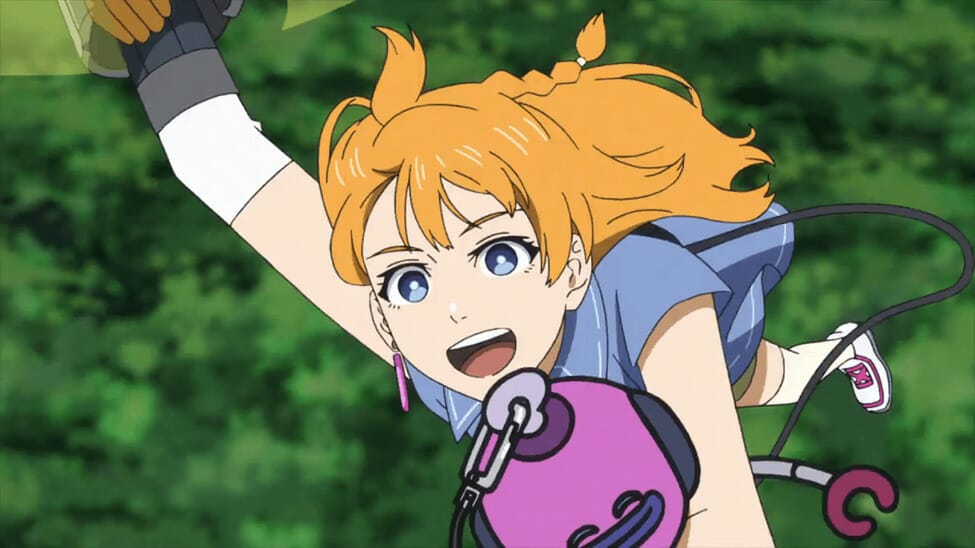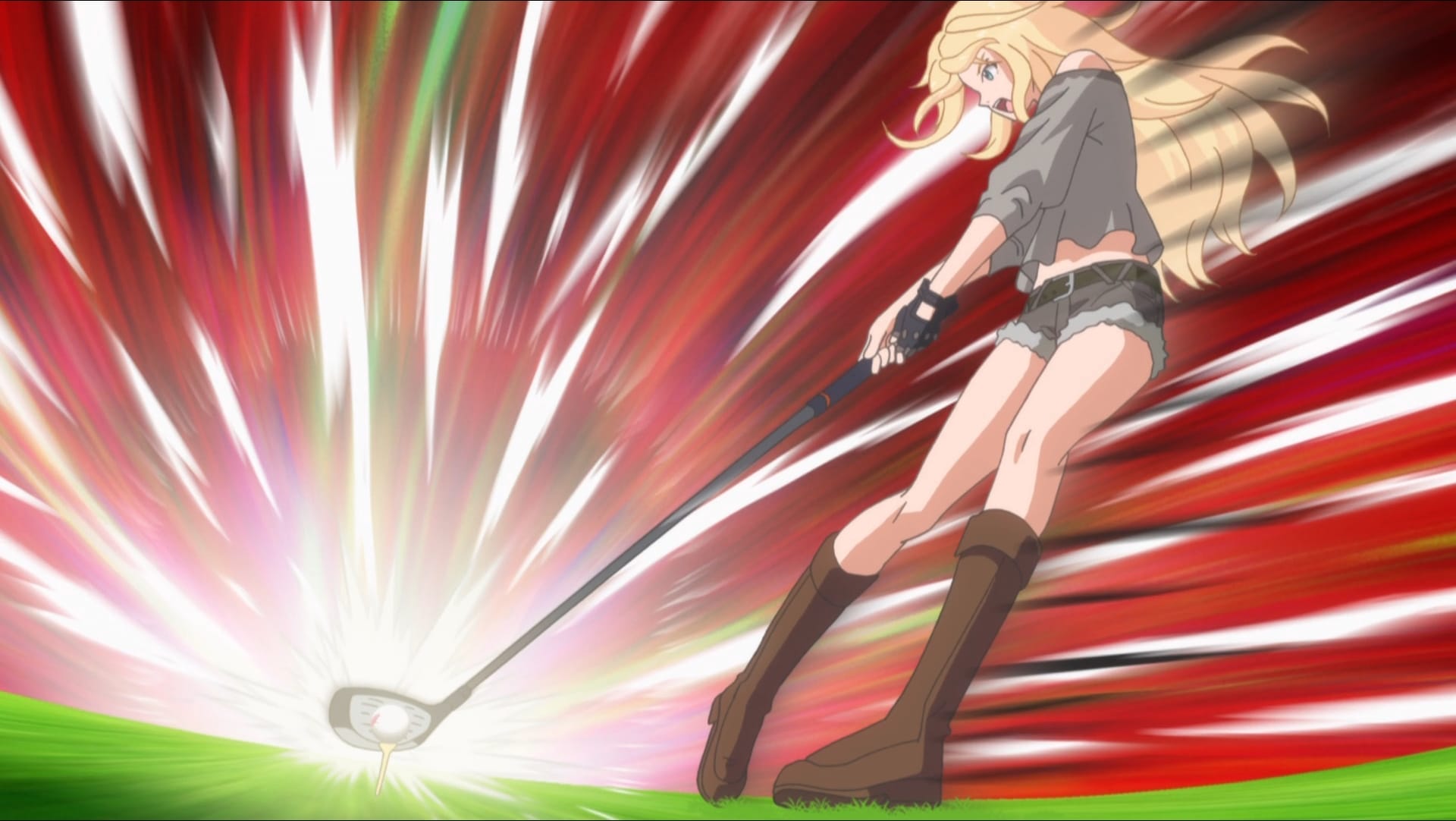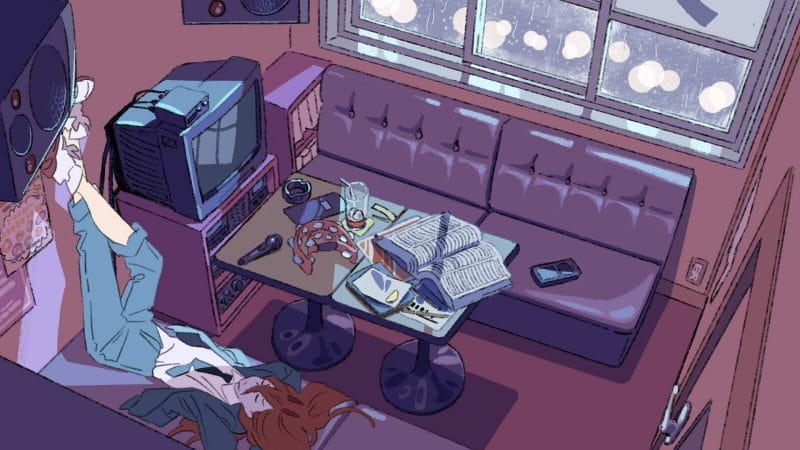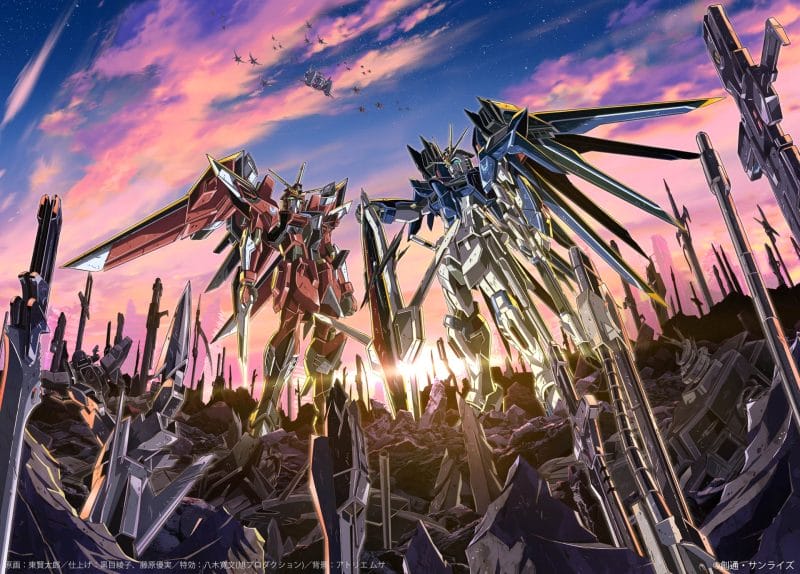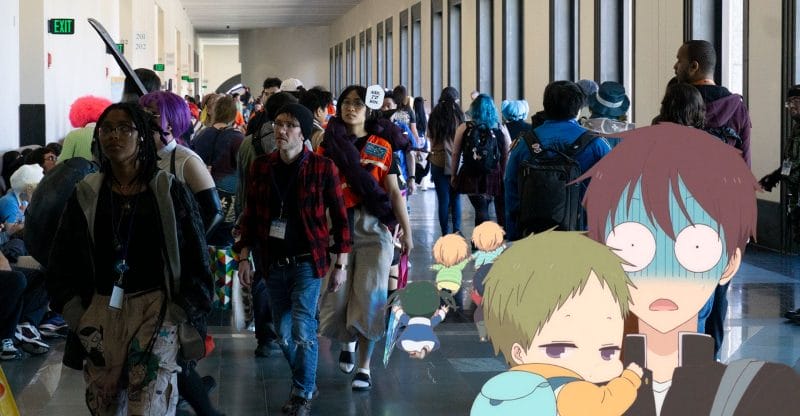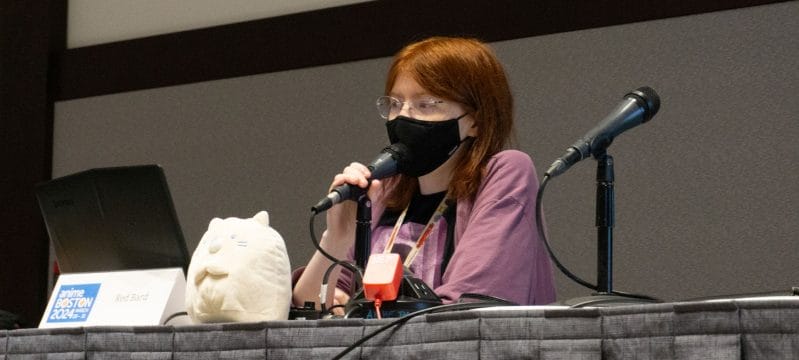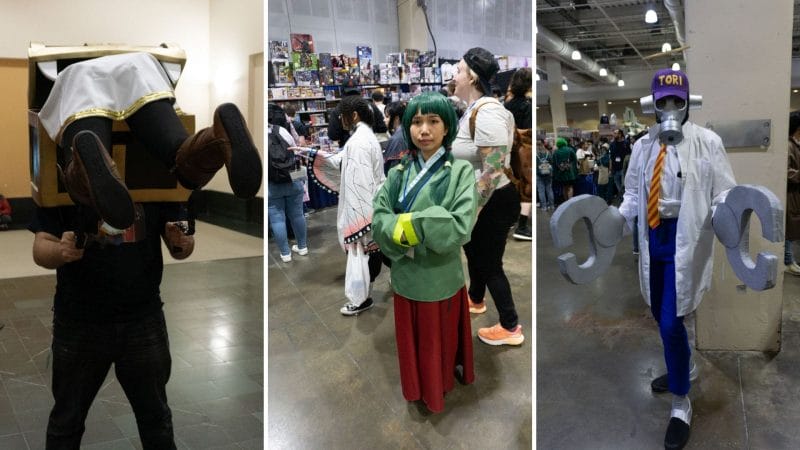Note: Contains spoilers for 2020 anime Deca-Dence.
Apathy is the death of any social movement. One can’t move forward if they give up on progress. Deca-Dence is an anime about finding the will to overcome apathy in order to change the world for the better. It also stresses the value of each person within the system, regardless of their circumstances. Using a post-apocalyptic, capitalistic setting, the narrative supports these themes while also giving insight as to the circumstances and perspectives that can lead to both complacency and activism.
The series takes place in the ruins of a devastated world, which is now ruled by the Solid Quake corporation. Following the demise of global civilization, the company initiated a program in which privileged survivors could become cyborgs and then erected a massive entertainment facility known as “Deca-Dence, which allows these cyborgs to inhabit humanoid avatars in order to experience the thrill of battle against giant monsters known as the Gadolls.
The remaining humans, meanwhile, live inside of a giant moving fortress, also called Deca-Dence, eking out a meager existence in which they are kept unaware of the true circumstances of the world. The humans, also called “Tankers,” live their lives in constant fear of Gadoll attacks.
Lively protagonist Natsume wants nothing more than to join the Power, a group who fights the Gadoll. Her unflappable determination stands as a stark contrast to Kaburagi, a defeated member of cyborg society who’s given up on life. Over time, he regressed into apathy, losing all hope and ambition while becoming little more than an obedient cog in the system.
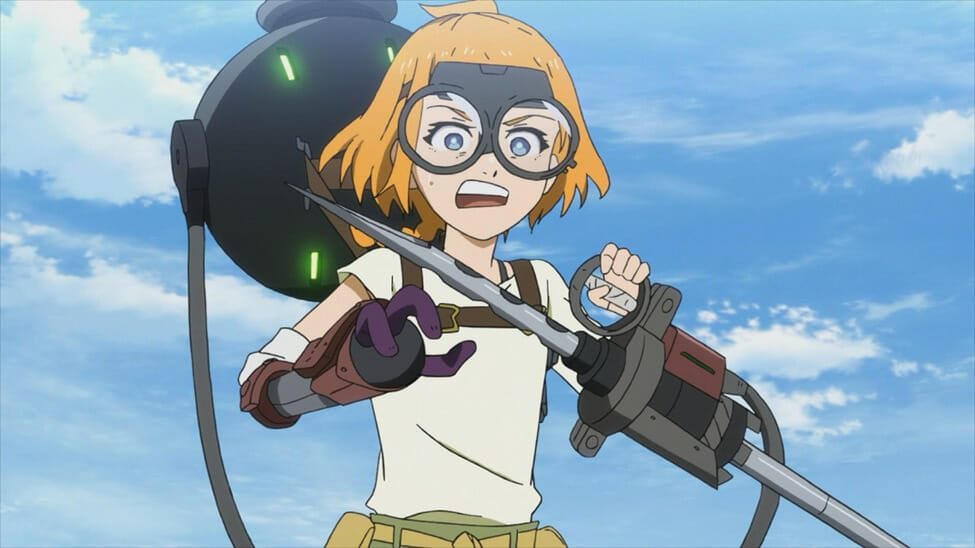
Because of her missing arm, Natsume is seen as less valuable in the eyes of her society. It is presumed that, even with a prosthetic, she can’t fight against the Gadoll. So instead of being allowed entry into the Power, she’s assigned a job cleaning viscera from the walls of the Deca-dence fortress.
By the third episode, Deca-Dence’s anti-capitalist themes become clear, as it is revealed that the Solid Quake corporation quite literally purchased the rights to humanity, who were on the brink of extinction. It’s through this lens that the show delivers what I found to be its core thesis: “capitalism, as a system, is one that prioritizes profits over people.” Natsume isn’t seen as a person who could meaningfully benefit Solid Quake, so she’s discriminated against. This form of ableism is institutionalized by the system and perpetuated by her peers. She’s treated poorly by others and even patronized by her friend, Fei.
It’s bitingly reminiscent of real-world ableism. In the United States, for example, companies are allowed to pay certain disabled workers less than minimum wage, based on their anticipated lack of productivity (United States, Dept. of Labor, Wage and Hour Division). Moreover, the disabled are less likely to be employed in the first place (United States, Dept. of Labor, Bureau of Labor Statistics).
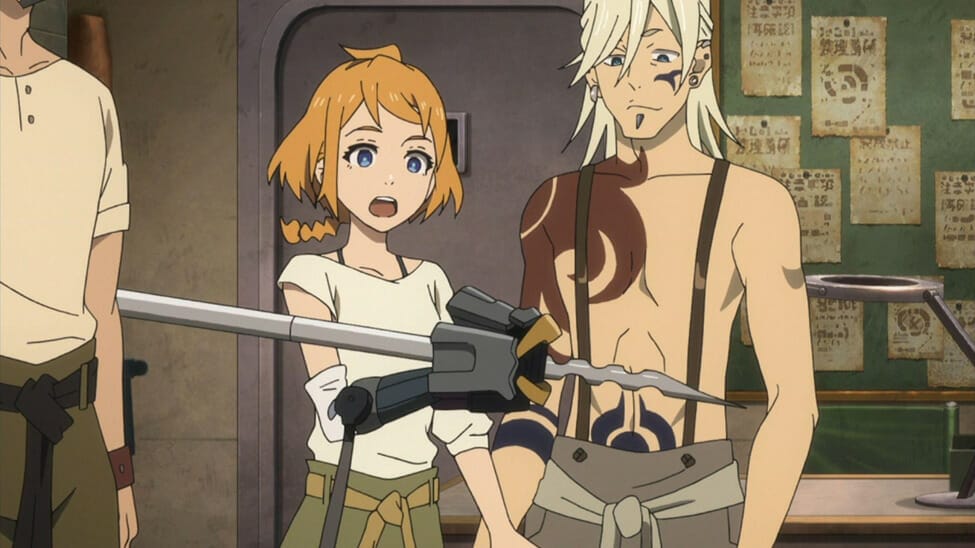
While the inherent potential of disabled people might not be recognized by many systems, fictional or real, they are nonetheless valuable. When they are allowed the accommodations they need to participate in a society that is not built for them, many are capable of contributing in precisely the ways they wish. Deca-Dence shows an argument for such accommodations in episode 3, when Kaburagi upgrades Natsume’s prosthetic. It improves her grip and enables her to fight the Gadoll with less risk to her life.
Still, this isn’t enough. “I can’t give up on my ambitions. It means I’d be giving up on life itself,” Natsume declares at one point. She refuses to settle for the monotonous existence that’s been thrust upon her. But as she soon learns, the freedom to choose her path in life isn’t the full extent of what it means to be free.
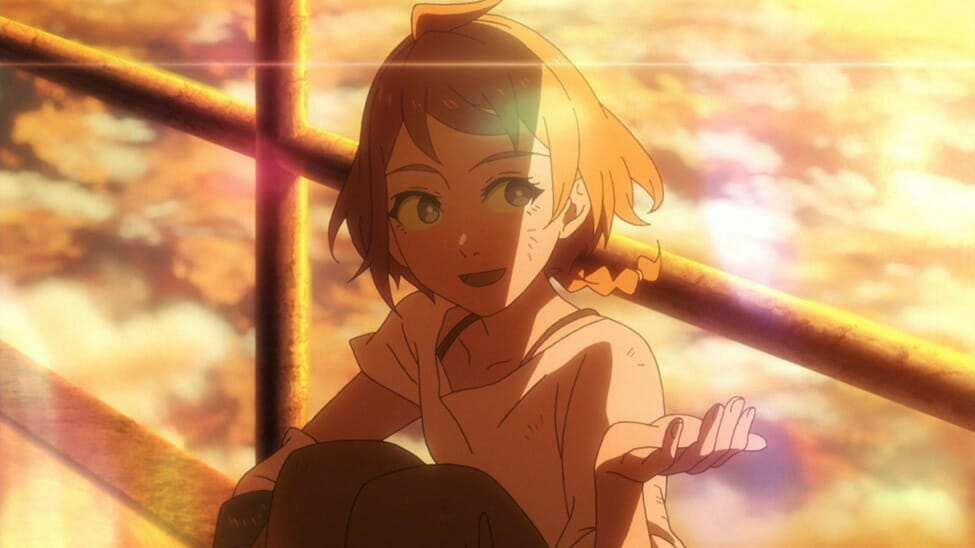
Natsume encapsulates one of the series’ defining messages when she muses, “Everybody needs stuff that makes them happy, like having a drink of milk with a friend. I don’t think you can even call it living if you don’t have any fun in your life. I mean, you’d just be circulating air.” The most important freedom to make life worth living is the ability to enjoy it. It’s that simple.
In a capitalist system, though, work is an inevitable part of life. There are mouths to feed, houses to build, and problems to solve. The humans in Deca-Dence know this as well as we do. But humans are not machines, and work is not the only thing that defines the human experience. Rather, people need a fair society that offers fulfillment from their work and an opportunity to live their lives outside the context of labor.
Actually realizing such a world can seem impossible, and in the show, we see this by the system actively discouraging people from trying to improve it, and in that process, encouraging apathy.
By and large, people tend to value their own lives more than anything else. Anything that threatens a person’s status quo can be perceived as a loss, leading to a reflexive desire to preserve things as they are. This factors heavily into human decision-making. (Seiler) Accordingly, workers are encouraged to expect less, both in the series and in real life. A good example of this is Fei, Natsume’s best friend. She expects little, and she wants to keep it this way. Change brings her discomfort. She’s settled on a meager existence, and anything more is something she instinctively rejects. This is why she’s against Natsume’s aspirations to engage in combat, frequently targeting her disability as a reason to withdraw. Fei’s conservative mindset is what can deter people from supporting policies that may be in their best interest. Meanwhile in the real world USA, worker expectations have fallen so low that in 2019, CNBC reported “94 percent of employees say that they would stay at a company longer if it simply invested in helping them learn.”
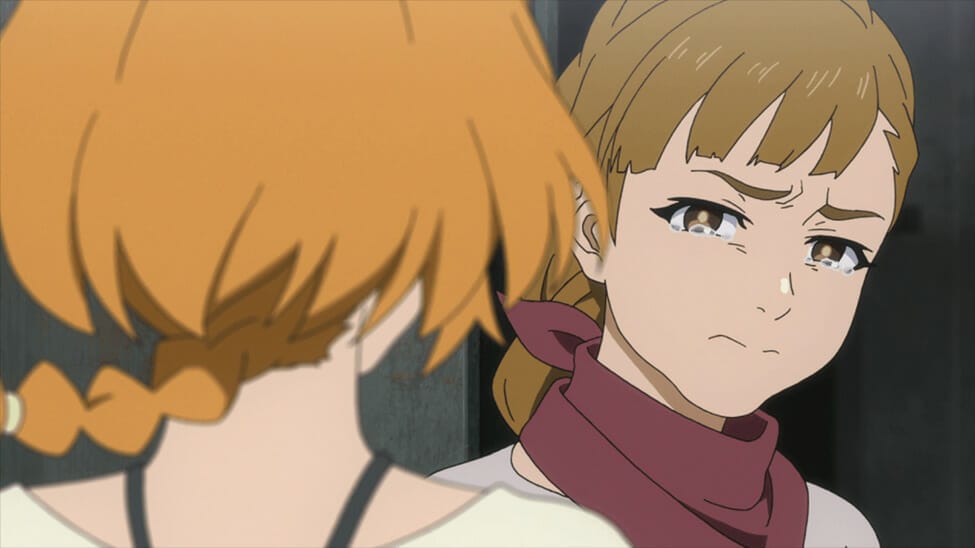
With all these barriers in place, Deca-Dence still asserts the importance of overcoming apathy to create a better world. Natsume is a character whose desires explicitly reject apathy. She desires to overcome the limits placed on her by other Tankers and the system. But the problems humanity faces, and the insecurities she feels, don’t go away simply by one person’s hard work. She needs help, and her enthusiasm for change is contagious.
In episode 7, she tries to convince everyone to help out with sealing a catastrophic hole in the mobile fortress caused by the attacking Gadoll. While her peers were initially reluctant at first, her enthusiasm spread. Over time, they are able to overcome their apathy and work together to solve this issue. As succinctly put by one of the workers, “There is more to doing your part than doing your job.” The importance of coming together as a community to solve problems is stressed by showing that even outside of work, there are ways to positively contribute to society. It may not create profit, but it shows the value of collective action.
It isn’t just Natsume’s human friends who are inspired to overcome their apathy, however. Her passion also rubs off on her ally Kaburagi.

At the beginning of the series, Kaburagi had all but given up on life. In his backstory, we see that his friend Mikey was “scrapped” for breaking the rules after attempting to exceed company-prescribed limits. Kaburagi and his friends were also punished for their involvement with each other and other “bugs,” discouraging them from associating with one another. But after meeting Natsume, seeing a “bug” work so hard towards her ambitions convinced him it was worth living a little longer.
Kaburagi’s hope grew over several episodes as he watched her persist. Seeing Natsume fight gave him the push he needed to finally resist the system. He broke the rules so he could directly assist her, which earned him a prison sentence.
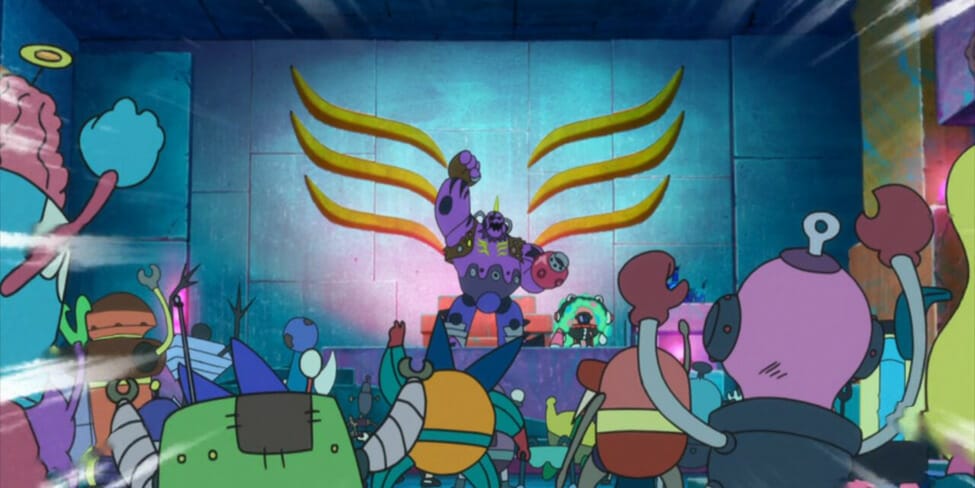
This time, though, apathy was the last thing on his mind. His goal was that of revolution. Even in prison, his mindset continued to spread like wildfire. He was able to convince the other inmates to help him destroy the Gadoll factory and end the cruel game that had been toying with the dignity of humans and cyborgs for so long. His fellow prisoners had had enough of their cruel treatment, and felt it was worth fighting back.
“The world will be free, thanks to bugs,” he said. And in a world where “bugs” are equated with anyone who disrupts the system, he was right. By the end of the series, almost everyone had become “bugs.” The humans had all committed to working together to face their problems head on. They and the remaining cyborgs created a fairer system that values leisure and entertainment as a core part of the human experience. While most of the inhabitants of Deca-Dence had initially been apathetic, the desire for change spread until nearly everyone had decided they had had enough.
Throughout real-world history, the most significant progress has been made by people who refused to perpetuate the status quo. They advocated for their idea, got people on board with their cause, and organized others to fight alongside them for the common good. Deca-Dence is a story that teaches us that this is the type of person we want to be if we want to make a better, freer world—the kind of person who acts.

Works Cited
United States, Department of Labor, Wage and Hour Division. “Fact Sheet #39: The Employment of Workers with Disabilities at Subminimum Wages”, July 2008, https://www.dol.gov/agencies/whd/fact-sheets/39-14c-subminimum-wage
United States, Department of Labor, U.S. Bureau of Labor Statistics. “Persons with a Disability: Labor Force Characteristics Summary”, 24 Feb. 2022, https://www.bls.gov/news.release/disabl.nr0.htm
Seiler, Michael J.; Vicky, Traub; Harrison (2008). “Familiarity Bias and the Status Quo
Alternative”. Journal of Housing Research. 17 (2): 139–154


